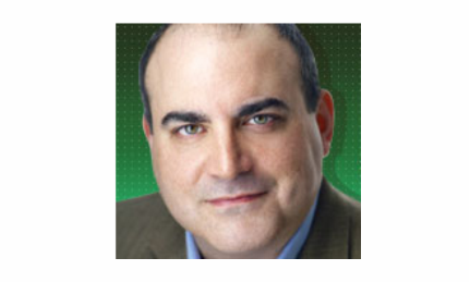FTC's Blogger Endorsement Rules & Regs: Not Really Needed - Shelly Palmer - MediaBizBloggers

On the subject of blogger endorsement guidelines, the FTC said: "The commission disagrees with those who suggest that including in the guides examples based on these new media would interfere with the vibrancy of these new forms of communication, or that the commission should, instead, defer to industry self-regulation," the commission wrote. "The guides merely elucidate the commission's interpretation of [the FTC Act] but do not expand (or limit) its application to various forms of marketing."
Want to have a really good time? Try getting through the other 81 pages of the "Federal Trade Commission, 16 CFR Part 255, Guides Concerning the Use of Endorsements and Testimonials in Advertising." It's a page-turner!!!
If this wasn't the driest document I have ever forced myself to read, and, if this document didn't illustrate one of the biggest problems that brands and consumers are going to face in the 21st Century, it would actually be funny.
Let's review. Three years ago, including VHF, UHF, Low Power, Cable, Radio, etc. there were about 25,000 broadcasters in the United States. Today, let's pick a number ... there are ~55,000,000 entities and organizations that, at the touch of a button, can broadcast a message worldwide.
You will now push back and say that there are really only six major media companies that can broadcast worldwide, and the best everyone else do is make their content available to a worldwide audience. I'm fine with that distinction. It will not have any impact on the thesis of this writing.
The currency of the advertising business is attention. We "pay" attention to things that interest us and we "receive" attention from things that are interested in us. You do not need to use any complex mathematics to illustrate that the number ~55,000,000 is much larger than the number 25,000. Even if every individual only pays a little attention to something other than the original 25,000 broadcast entities, the shift in their attention will be very large.
This is the simplest way to describe what has happened to communications in the 21st Century, but the impact is being felt in much more subtle ways across all of the related disciplines. For advertisers and marketers, consumers seem to be more in control than ever before. For broadcasters and advertisers, audiences now seem atomized rather than fragmented. For consumers, there is simply too much to choose from, too much to pay attention to.
The FTC has noticed that people are paying attention to lots of different things. They have also noticed that they are not really set up to deal with ~55,000,000 purveyors of information. It's not just a problem for the FTC, it is an endemic problem of our time. They have a mission. They work for consumers to prevent fraudulent, deceptive, and unfair business practices and to provide information to help spot, stop, and avoid them. But the tools to deal with this in the information age simply do not exist.
Let's say I'm a blogger, a micro-blogger, someone with 5,000 Facebook friends, a large group of LinkedIn contacts, a huge MySpace or Twitter following and I get a free camera from a CE manufacturer ... shouldn't I have to disclose the freebee? Would a new, young mother seeking advice from a semi-professional mommyblogger think more or less of the information she gets about a particular brand of stroller if she knew that the mommyblogger was getting paid to tout its virtues? Wouldn't it be great if everyone (because there is now absolutely no distinction between professional and amateur journalists) that wrote about stuff had to make a full disclosure as to their particular motivations? It would also be great if there really was a Santa Claus.
The FTC guidelines are wonderful. So is the Golden Rule. But that doesn't mean people will apply them. There is absolutely no way that this problem gets fixed; in fact, there is no probable future where it doesn't get worse. How much worse? We are witnessing the very beginning of a metaphoric tectonic plate shift unlike any thing we have ever experienced.
"I know of scarcely anything so apt to impress the imagination as the wonderful form of cosmic order expressed by the 'Law of Frequency of Error.'" Said Sir Francis Galton (Natural Inheritance, 1889) as he went on to describe the Central Limit Theorem. "The law would have been personified by the Greeks and deified, if they had known of it. It reigns with serenity and in complete self-effacement, amidst the wildest confusion. The huger the mob, and the greater the apparent anarchy, the more perfect is its sway. It is the supreme law of Unreason. Whenever a large sample of chaotic elements are taken in hand and marshaled in the order of their magnitude, an unsuspected and most beautiful form of regularity proves to have been latent all along."
Central Limit Theorem or Law of Large Numbers, which ever one you like to apply to this kind of problem, you're going to get the same general result. The millions of random bloggers and neuvo-broadcasters can create as chaotic a world as they like, but the trend is going to come out in the wash -- more attention will be spent on lots of little things and less attention will be spent of few big things.
One probable outcome of this trend is the self-assembling of small trust circles around individuals who can pay and receive attention only to known entities that have earned and kept their trust. Can big media play a roll? Can big brands? Can big anything work its way into your trust circle?
No regulatory agency is going to be able to govern this explosive amount of widely distributed information. But that's OK, it will truly take care of itself.
Shelly Palmer is the host of MediaBytes with Shelly Palmer, a daily show featuring news you can use about technology, media & entertainment. He is the author of Television Disrupted: The Transition from Network to Networked TV (2008, New York House Press) and the upcoming, Get Digital: Reinventing Yourself and Your Career for the 21st Century Economy. (2009, Lake House Press). Shelly is also President of the National Academy of Television Arts & Sciences, NY (the organization that bestows the coveted Emmy Awards). For information about Get Digital Classes, visit http://www.shellypalmer.com/seminars
Read all Shelly’s MediaBizBloggers commentaries at Shelly Palmer - MediaBizBloggers.
Follow our Twitter updates @MediaBizBlogger


